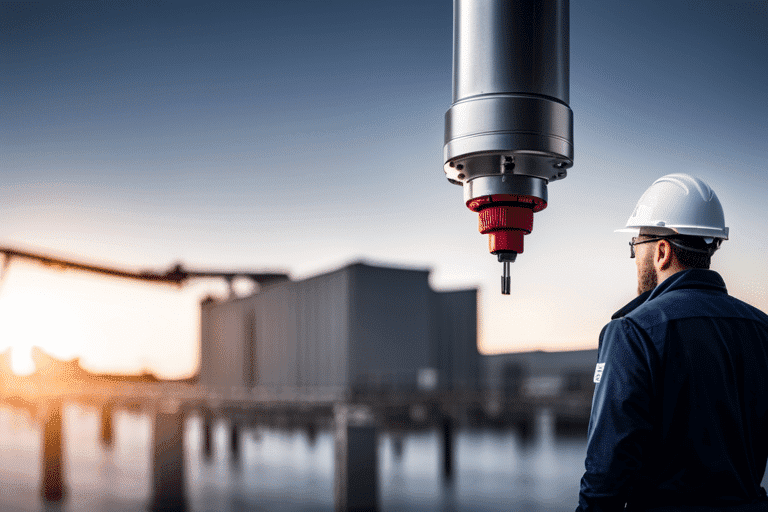Keeping ahead of the competition in today's fast-paced industrial environment requires more than just hard work. It requires innovation and relentless pursuit of efficiency. For many industrial businesses, streamlining operations is a constant challenge that can hinder productivity and increase costs. However, with the advent of industrial automation solutions, a new era of streamlined operations is within reach. These cutting-edge technologies are revolutionizing the way businesses operate by unlocking efficiency and optimizing processes. In this blog post, we will explore the significance of industrial automation solutions and shed light on how they can help businesses achieve their goals of increased efficiency, reduced costs, and improved productivity.
Streamlining operations can be a challenge for many industrial businesses
Streamlining operations can be a challenge for many industrial businesses. In today's fast-paced and highly competitive market, it is essential for industrial businesses to constantly strive for greater efficiency and productivity. However, the complex nature of industrial operations often poses significant hurdles that hinder optimization efforts.
One of the main problems faced by industrial businesses when streamlining operations is the lack of visibility and coordination between different departments and processes. Many companies operate in silos, with each department or team working independently without a holistic view of the overall operations. This lack of communication and coordination leads to inefficiencies, duplication of efforts, and delays in decision-making.
Furthermore, manual processes and outdated legacy systems add to the complexities. These manual tasks are not only time-consuming but also prone to errors, leading to decreased productivity and increased costs. The lack of automation in critical areas further amplifies these challenges.
However, there is a solution that can revolutionize the landscape of industrial business operations. Industrial automation solutions can help unlock efficiency and streamline processes for a more efficient operation. By integrating various systems and processes with advanced automation technology, businesses can achieve real-time visibility into their operations. This visibility allows for better coordination between different departments, ensuring seamless communication, and facilitating informed decision-making.
Automation also eliminates the need for manual tasks, automating repetitive and error-prone processes. With the aid of robotics and artificial intelligence, tasks that were once time-consuming can now be completed quickly and accurately. This not only improves overall productivity but also reduces operational costs associated with human errors and delays.
Furthermore, industrial automation solutions enable predictive maintenance and reduced downtime. By utilizing sensors and data analytics, businesses can proactively detect potential issues and address them before they escalate, minimizing downtime and optimizing maintenance schedules.
In the next paragraph, we will explore in more detail how industrial automation solutions can be implemented and the specific benefits they bring to streamline operations in industrial businesses.
Industrial automation solutions can help unlock efficiency and streamline processes for a more efficient operation
With today's rapidly evolving industrial landscape, businesses have to face a multitude of challenges when it comes to streamlining operations. The relentless pressure to cut costs, increase productivity, and enhance efficiency can often seem insurmountable. However, there is a promising solution on the horizon that has the potential to revolutionize industrial operations – industrial automation solutions.
Industrial automation, the use of advanced technology and robotics to automate processes and tasks, is gaining traction in various industries. From manufacturing plants to warehouses and logistics centers, businesses are embracing automation to streamline their operations and unlock unprecedented levels of efficiency.
One of the key advantages of industrial automation solutions is the elimination of human errors. Human workers, no matter how skilled or diligent, are prone to making mistakes. These errors can lead to costly delays, rework, and quality issues. By implementing automation, businesses can significantly reduce the margin of error and ensure consistent and precise results.
Moreover, industrial automation solutions offer unparalleled speed and accuracy. Automated machines and robots can perform tasks at a much faster rate than their human counterparts. This not only accelerates the production process but also increases output without compromising on quality. Additionally, automation allows for continuous operation, minimizing downtime and optimizing resource utilization.
Another significant benefit of industrial automation is enhanced safety. Traditional industrial processes often involve hazardous tasks that put human workers at risk. By automating these processes, businesses can protect their employees from potential injuries and create a safer work environment. This, in turn, boosts employee morale and reduces turnover rates.
However, it's essential to note that implementing industrial automation solutions requires careful planning and consideration. Businesses must assess their specific needs, conduct thorough cost-benefit analyses, and invest in appropriate technology. Furthermore, automation should complement human workers rather than replace them, with employees being upskilled to manage and maintain the automated systems.
Industrial businesses are well positioned to benefit from streamlining operations through industrial automation solutions. By harnessing the power of automation, organizations can eliminate errors, enhance operational speed, improve safety, and ultimately achieve remarkable levels of efficiency. Embracing automation is no longer a question of if, but rather when, businesses want to stay competitive in today's fast-paced, technologically driven world.
Automation solutions offer a range of benefits such as increased efficiency, reduced costs, and better productivity
Automation solutions have revolutionized the way businesses operate, providing an array of benefits that enhance efficiency, reduce costs, and improve productivity. Organizations across industries are increasingly turning to automation to streamline their processes, optimize resource allocation, and ultimately boost their bottom line.
One of the key advantages of automation solutions is the significant increase in efficiency they offer. By automating repetitive and time-consuming tasks, businesses can free up their employees' valuable time to focus on more complex and strategic activities. This ensures that tasks are completed faster, reducing the overall turnaround time and increasing operational efficiency. Additionally, automation eliminates the risk of human error, thus enhancing accuracy and quality in various processes.
Another substantial benefit of automation solutions is the reduction in costs that comes with it. With automation, businesses can minimize the need for human resources, leading to significant savings in terms of labor costs. Moreover, by automating routine tasks, companies can optimize resource allocation by eliminating unnecessary or redundant activities. By reducing manual intervention, automation also helps to minimize production errors, thereby reducing costs associated with rework or product defects.
Furthermore, automation solutions contribute to better productivity levels within organizations. By automating workflows and improving the speed and accuracy of various processes, businesses can increase their output without requiring additional resources. This enhanced productivity can result in faster project completion, shorter lead times, and improved customer satisfaction. Moreover, automation provides real-time data and analytics, enabling businesses to make informed decisions and devise strategies for further optimization.
Key factors to consider when implementing automation solutions include identifying the specific repetitive tasks that can be automated, selecting the appropriate technology or software, and ensuring seamless integration with existing systems. It is crucial to thoroughly assess the impact of automation on employees and provide proper training to ensure a smooth transition.
Finally, automation solutions can transform the way businesses operate through a variety of benefits. Increased efficiency, reduced costs, and improved productivity are just a few advantages that automation brings to the table. Harnessing the power of automation can pave the way for organizations to stay ahead in today's competitive market by streamlining processes, optimizing resource allocation, and focusing on strategic initiatives.
Conclusion
To conclude, automating operations is a crucial objective for industrial businesses looking to remain competitive in today's fast-paced and ever-evolving market. Installing industrial automation solutions is a key step in achieving this goal. By embracing automation, businesses can unlock efficiency and streamline their processes, leading to increased productivity, reduced costs, and overall improved performance. Whether it's through robotic systems, sensor technology, or data analytics, automation offers a range of benefits that can significantly impact the success of a business. As a reader, it is important to recognize the significance of industrial automation and consider its potential impact on your own operations. By exploring and implementing automation solutions, you can pave the way for a more efficient and streamlined operation, ultimately giving your business a competitive edge in the industry.




